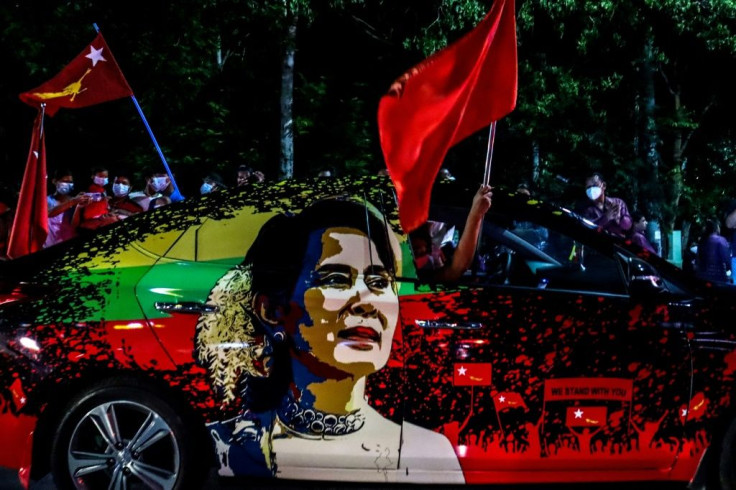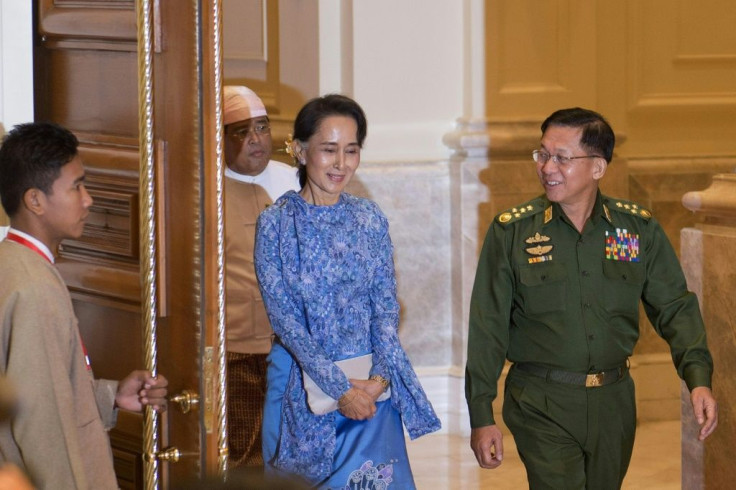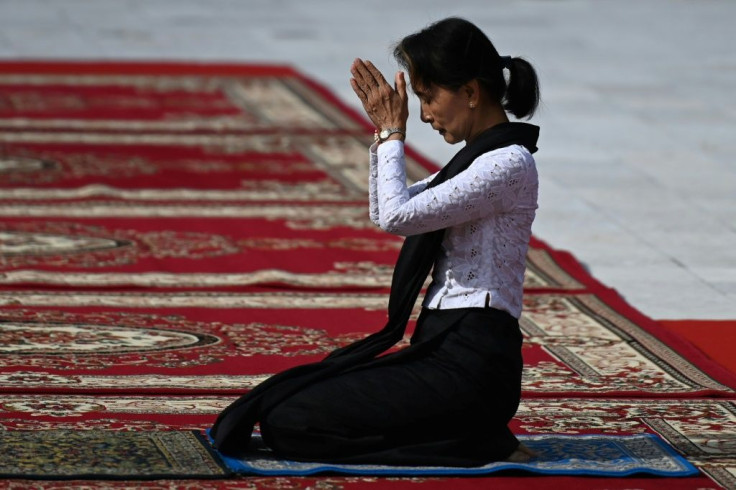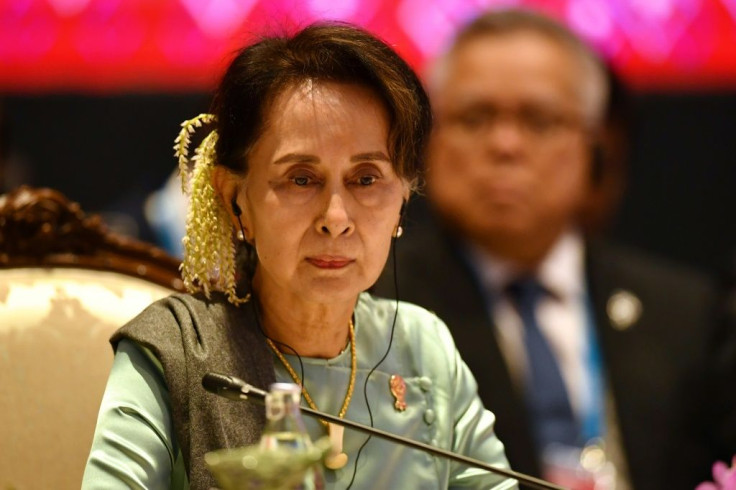Suu Kyi's Fate, And Myanmar's, In The Balance After Army Coup
After a lifetime struggling against Myanmar's military, 75-year-old Nobel laureate Aung San Suu Kyi is back under detention with a junta in power -- although her international image no longer shines.
She swept national elections last November and was preparing to begin another five-year term as the country's de facto leader.
But an early morning army raid and her detention in the capital Naypyidaw has brought her time at the helm to an apparent halt.

Suu Kyi, the daughter of independence hero General Aung San, spent nearly two decades enduring long stretches of house arrest under the former military regime.
Her legacy abroad has been deeply tarnished since the landslide election victory in 2015 that vaulted her National League for Democracy (NLD) to power.
There was global revulsion at a military crackdown two years later that saw around 750,000 members of the stateless Rohingya minority flee burning villages to neighbouring Bangladesh.
Suu Kyi defended the army's conduct and even travelled to The Hague to rebut charges of genocide at the UN's top court.

But she remains immensely popular in Myanmar and is referred to affectionately as "Mother Suu" by supporters, who see her as the best hope for shaking off the country's turbulent past.

Suu Kyi was born on June 19, 1945 in Japanese-occupied Yangon during the final weeks of World War II.
Her father Aung San fought for and against both the British and the Japanese colonisers as he jostled to give his country the best shot at independence.
That goal was achieved in 1948 but Aung San was not around to see it -- he and most of his cabinet had been assassinated just months before.
Suu Kyi spent most of her early years outside of Myanmar, first in India, where her mother was an ambassador, and later at Oxford University, where she met her British husband.

After General Ne Win seized full power in 1962, he forced his own brand of socialism on Myanmar, turning it from Asia's rice bowl into one of the world's poorest and most isolated countries.
Suu Kyi's elevation into a democracy champion happened almost by accident when she returned home in 1988 to nurse her dying mother.

Soon afterwards, at least 3,000 people were killed when the military crushed protests against its authoritarian rule.
The bloodshed was the catalyst for Suu Kyi.
A charismatic orator, she found herself in a leading role in the burgeoning pro-democracy movement, delivering speeches to huge crowds as she led the NLD to a 1990 election victory.
The generals were not prepared to give up power, ignoring the result and confining to her home in Yangon, where she would live for 16 of the next 20 years.
She was awarded the Nobel Peace Prize while detained in 1991, for her "non-violent struggle for democracy and human rights."
The junta offered to end her imprisonment at any time if she left the country for good but Suu Kyi refused.
That decision meant not seeing her husband before his death from cancer in 1999, and missing her two sons growing up.
The military eventually granted her freedom in 2010, just days after elections that her party boycotted, but which brought a nominally civilian government to power.
She swept the next poll five years later, prompting jubilant celebrations by massive crowds across the country, and increased her party's majority in 2020.
Suu Kyi's administration has been beset with trouble and marked by an uneasy relationship with the military, which maintains a powerful and outsized political role.
But both the government and the military appeared in lockstep after the 2017 Rohingya crackdown.
Her office denied claims that fleeing refugees had suffered rape, extrajudicial killings and arson attacks on their homes by Myanmar troops.
Some critics have accused her of behaving in an authoritarian manner and political prisoner advocates say her government has prosecuted and jailed dozens of rights activists.
"Myanmar people will remain supportive" of Suu Kyi in the wake of Monday's coup, said Yangon-based political analyst Min Zaw Oo.
But he added that her future and that of the country's fitful transition to democracy was "uncertain".
"This is the reality we are living in," he told AFP. "For us, we have to survive and we have to try again."
© Copyright AFP {{Year}}. All rights reserved.




















